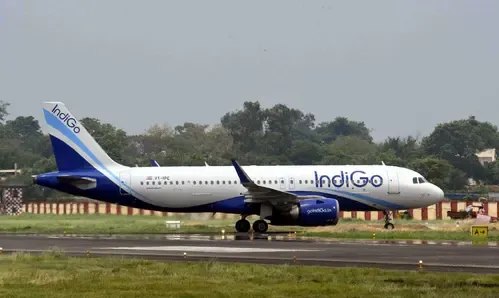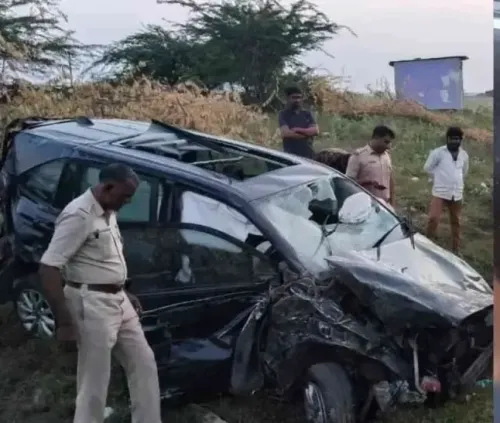Has DGCA Issued a Notice to IndiGo for Using 'Non-Qualified' Simulators?

Synopsis
Key Takeaways
- DGCA issues notice to IndiGo for simulator training lapses.
- 1,700 pilots are involved in the training concern.
- Critical airports require specialized simulator training.
- IndiGo has a 14-day response deadline.
- Safety compliance is paramount in aviation operations.
New Delhi, Aug 12 (NationPress) The Directorate General of Civil Aviation (DGCA) has formally issued a show cause notice to IndiGo for utilizing "non-qualified simulators" in the training of 1,700 pilots assigned to operate at three crucial airports featuring challenging runway conditions that necessitate specialized aircraft handling to guarantee safe landings and take-offs.
The show cause notice indicates that IndiGo performed Category C (Critical) airfield training for flight commanders and first officers employing non-qualified simulators.
The DGCA has revealed that an examination of IndiGo’s simulator training records uncovered that several Full Flight Simulators used for training, testing, or assessments for airfields such as Kozhikode, Leh, and Kathmandu were neither qualified nor approved for the specific airport models, as mandated under the Civil Aviation Rules (CAR).
The notice asserts that IndiGo has not ensured the use of appropriately qualified simulators for training concerning Class III (critical) airports, thereby violating CAR provisions.
The civil aviation authority has imposed a 14-day deadline for IndiGo to respond to the notice, explaining why action should not be taken against the airline for this oversight under the Aircraft Rules and CAR.
IndiGo has acknowledged receiving a show-cause notice from the DGCA regarding alleged shortcomings in simulator training conducted for nearly 1,700 pilots and has stated it is under review.
An IndiGo spokesperson stated: "We confirm receipt of a show-cause notice issued by the DGCA concerning the simulator training of some of our pilots. We are currently reviewing the matter and will respond to the regulator within the designated timeframe."
"Our commitment to maintaining the highest standards of safety and compliance across our operations remains unwavering," the airline added.
The Kozhikode airport is known for its tabletop runway, which is constructed on elevated terrain and can pose unique challenges for pilots. There is an increased risk due to the drop-off at the runway's end, heightening the potential for aircraft overruns. Furthermore, the elevated position can create an optical illusion, making the runway seem closer than it is.
Leh airport, one of the highest globally, sits at 10,682 feet (3,256 meters) above sea level. The lower air pressure and diminished oxygen levels affect aircraft performance, necessitating specialized pilot training. Located amidst towering mountains, it presents a complex flight path, making visual navigation especially critical during approach and departure.









